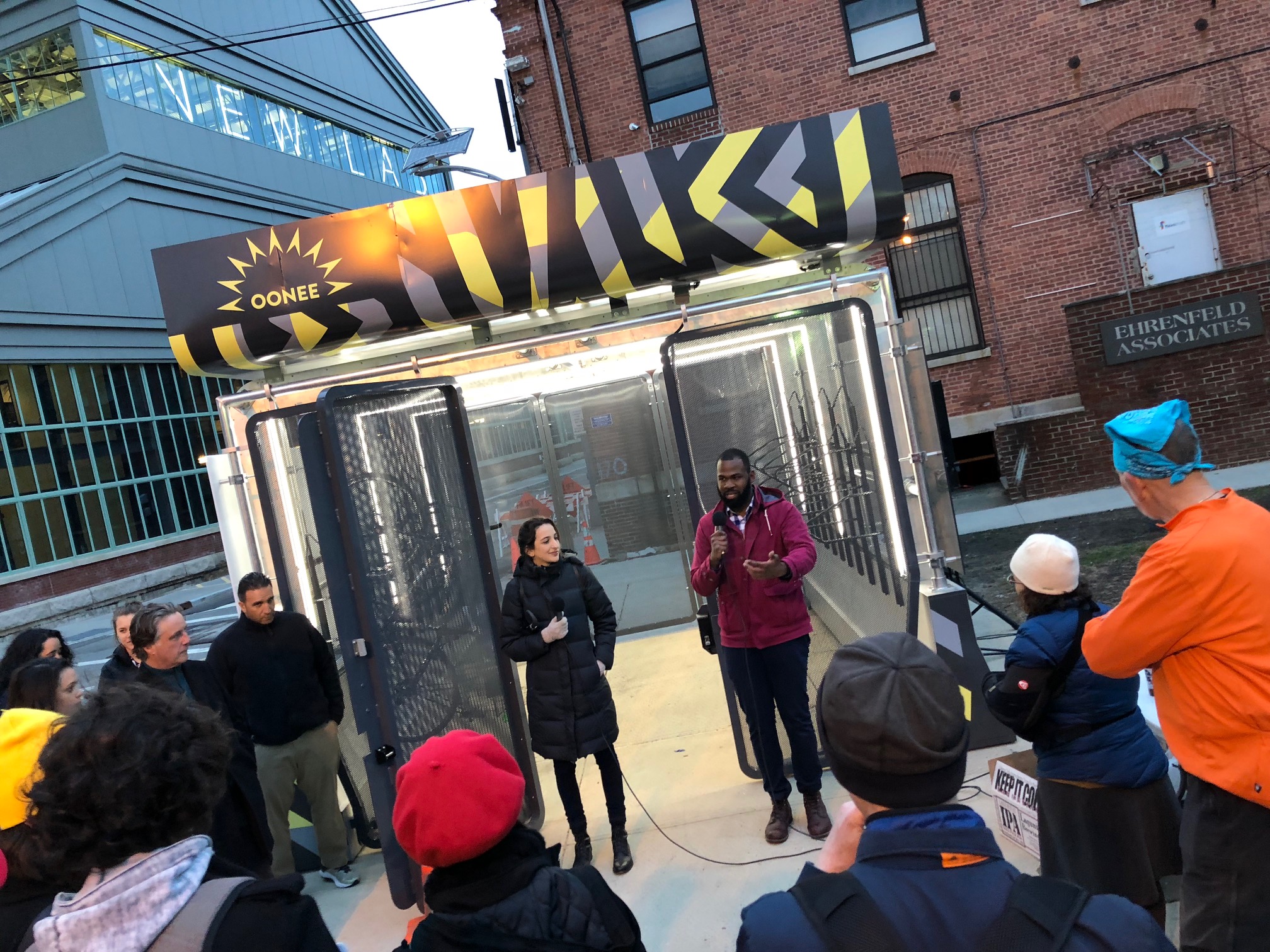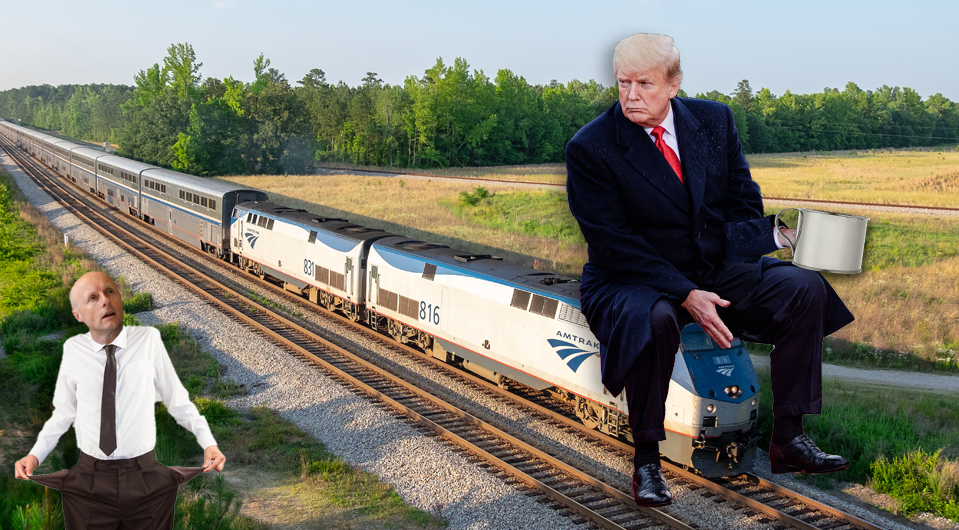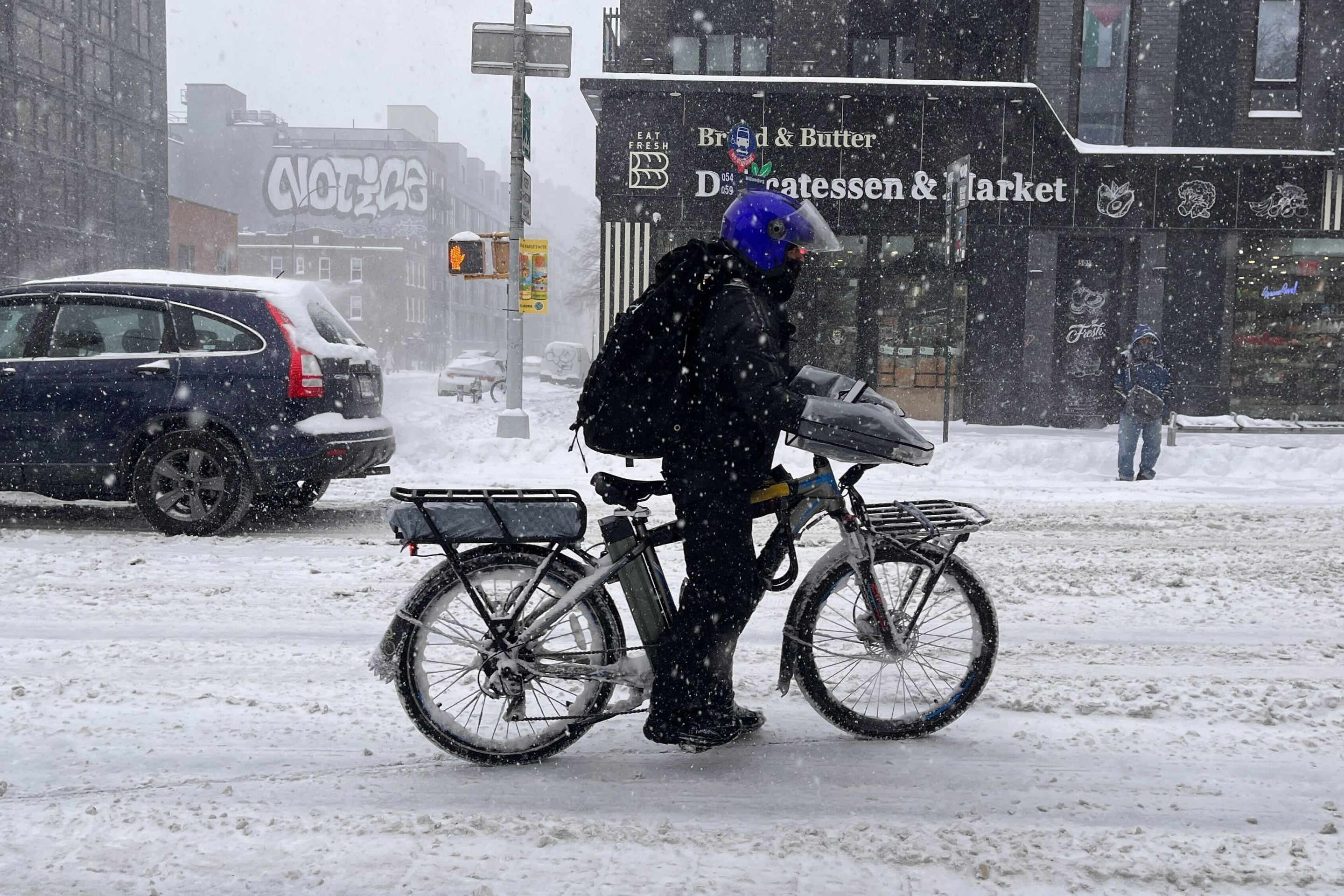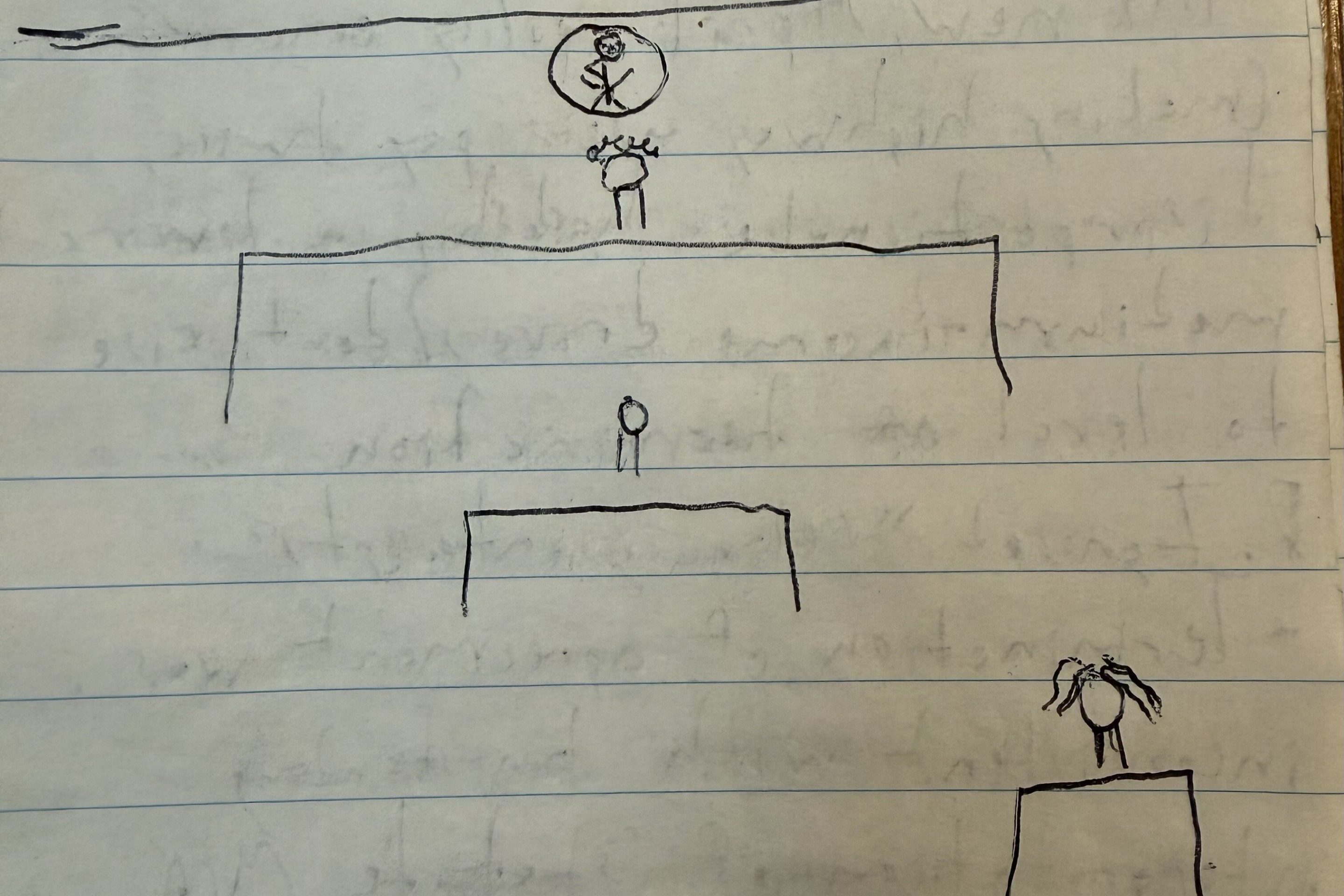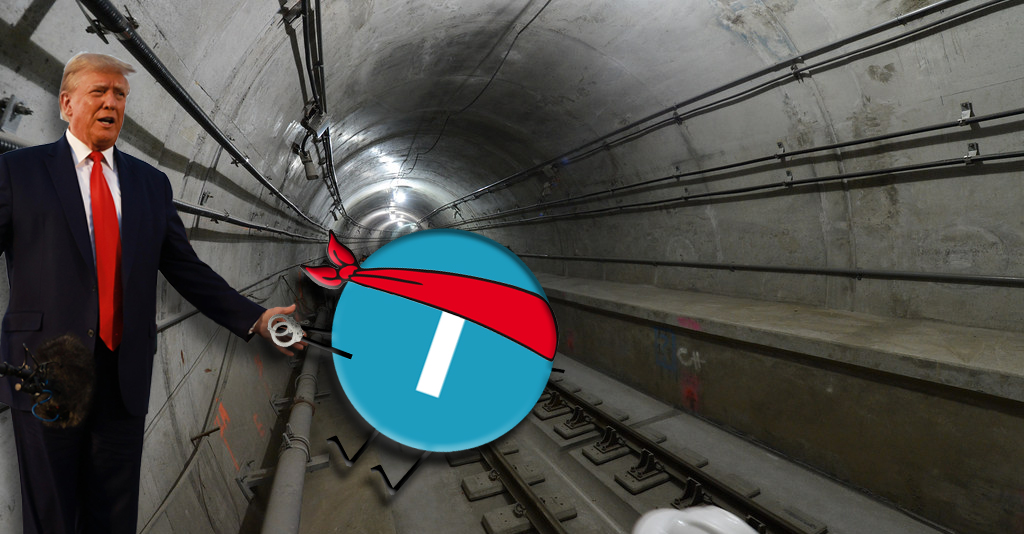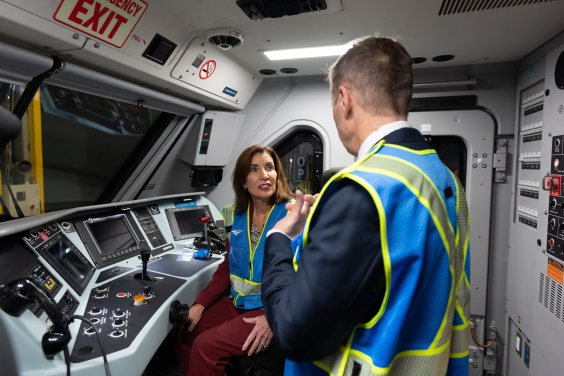Would you pay $100 a year for the ultimate bike insurance policy?
Lower Manhattan workers and residents will get to decide next month when the Oonee — a secure, rain-protected and thief-proof bike-parking module — lands at Water-Whitehall Plaza near the Staten Island Ferry terminal.
For $7.99 a month, cyclists can park, lock and walk away — safe in the knowledge that their bike is behind four steel-secured walls.
"And if your bike is somehow stolen, we'll replace it," said Shabazz Stuart, the 29-year-old founder and CEO of the company, which has been testing its first station in the Brooklyn Navy Yard since April.
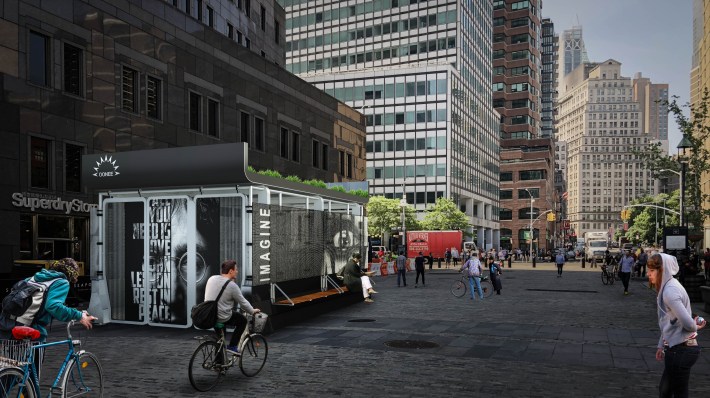
The concept behind Oonee — the name is a play off of uni, the Japanese word for sea urchin, which, the Oonee's website reminds, has "safety features to protect its valuable interior cargo" — is simple: Roughly 200 parts can be quickly assembled into a 14-foot cube that houses 20 bike racks. The door is unlocked with a card key or smartphone. Users then simply lock their bike vertically to the racks and close the metal door behind them as they leave.
Stuart knows that most cyclists just park wherever they find a pole, but in Lower Manhattan, even such minuscule real estate is a prime commodity (even Staten Islanders are seeing the need for more bike parking). And even if parking is available, it comes with a persistent nagging feeling.
"Fifty percent of New Yorkers experience bike theft," said Stuart, a former deputy director of operations for the Downtown Brooklyn Partnership. "People feel comfortable parking their on the street — until they come back and the bike is missing and they have to make that long walk home with my helmet."
Bike theft is not just a personal trauma but a national tragedy. And it's a particularly vicious cycle: When bikes are stolen, people are less likely to ride — or they'll ride an old "beater" or a Citi Bike, and not really enjoy cycling all that much. If people don't enjoy cycling, they'll do it less, possibly encouraging city officials to slow down their cycling safety initiatives, which will make cycling less safe, prompting fewer and fewer to do it.
"When the Department of City Planning asks people why they don't bike to work, one of the leading reasons is lack of secure parking," Stuart said. "The status quo isn't working. The status quo is depressing cycling."
(Full disclosure: During my time as editor of The Brooklyn Paper, my bike was stolen so often that we referred to bike theft as "getting gershed." I am no longer at that newspaper, but my bike was gershed again last month on the Lower East Side. Stuart's bikes have been gershed three times. And Jessica Lappin of the Downtown Alliance, which is partnering with Stuart for his first real-world test of the Oonee pod, has also been gershed once, her spokesperson told Streetsblog.)
A spokesperson for the Downtown Alliance said the business group got involved to see if Oonee is an amenity local workers want — there are about 40,000 of them in a four-block radius of the Oonee pod site.
"It offers a unique service to residents and workers," said Jane Wolterding, the director of planning/operations with the Alliance. "It would be great to have them all over Downtown if we could find the space for them."
Stuart has a larger vision of app-enabled pods connected via the Internet to a variety of bike service providers. With a touch of the app, a bike owner could, for example, unlock the two-wheeler so that it can be picked up by a repair shop for a tune up — then returned to its spot before the rider needs it to get home. Some pods could even have a bike repair station inside them.
But the bottom line is parking. And current modes are not working. In 2009, the city passed what was billed as a landmark "bikes in buildings" law, which many supporters believed would force landlords to open up space for secure parking. It has not worked out that way, with some landlords putting the bike parking in an area accessible only with a freight elevator that goes out of service long before most workers are done for the day. Other landlords force tenants to file a complaint with the city to get the bike parking (which, if you know anything about landlord-tenant relations, is not a great situation for a tenant to be in).
Stuart believes the Oonee pod is the game-changer because its attractive, easy to take apart, is exempt from city red tape because it's not a permanent structure and, best of all, can activate public space.
"It enhances the surrounding area," he said. "It's an amenity that can attract people."
